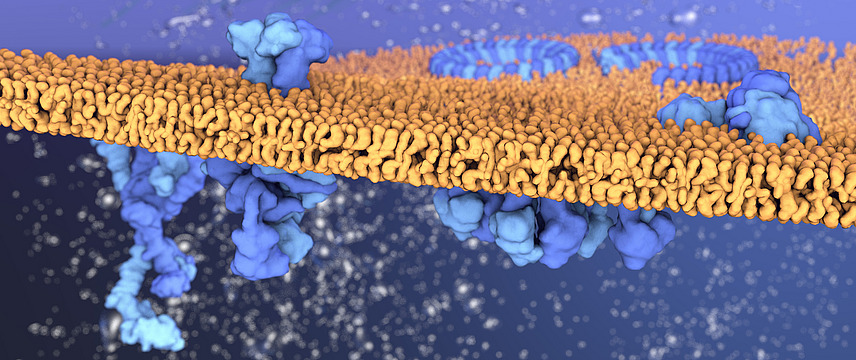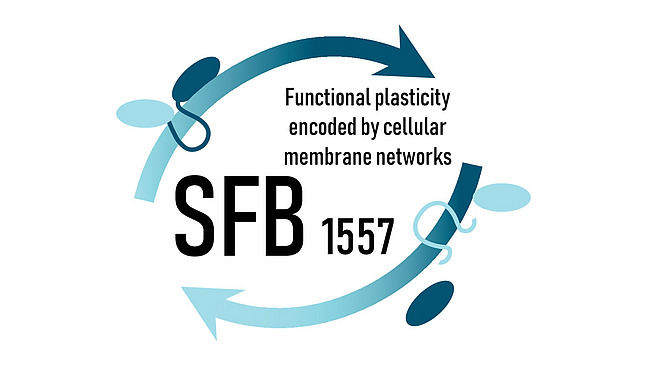General
SFB 1557: Functional plasticity encoded by cellular membrane networks
Research aims
Life depends on the ability to adapt to changing conditions. For this, organisms need to regulate protein function in time and space. Unraveling the underlying mechanisms that control the functional plasticity of biological processes is at the core of fundamental biological research. Here, the complex membrane networks of eukaryotic cells with their numerous different lipids and proteins present a particular challenge.
Our research initiative addresses how membranes and their lipid code control the plasticity of membrane protein functions - and how in turn membrane properties are maintained and adapted in response to the environment. In our projects, we will focus on mechanisms of this functional plasticity of membranes in various physiological and pathophysiological processes.
Expected Insights
Our projects will provide insights into the physiological adaptation of membrane properties and their dysregulation in diseases, which are caused by defects in lipid metabolism or membrane protein assembly, targeting, or function. Importantly, many pathogens manipulate cellular membrane networks and reprogram membrane-associated machineries to promote their replication. An integrated and mechanistic understanding of the plasticity encoded by cellular membranes will be key to future concepts of therapeutic interventions.


